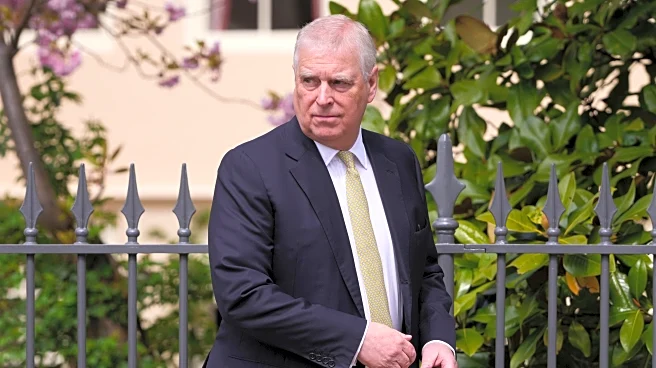Rapid Read • 8 min read
President Trump has declared a 100% tariff on computer chips, targeting companies that do not commit to manufacturing in the United States. This announcement was made alongside Apple CEO Tim Cook, who pledged an additional $100 billion investment in U.S. manufacturing, raising Apple's total commitment to $600 billion. The move is part of Trump's broader strategy to incentivize domestic production, contrasting with the previous administration's approach under President Biden, which focused on financial incentives through the CHIPS and Science Act. The tariff aims to pressure companies to establish factories in the U.S., despite potential impacts on corporate profits and consumer prices.
AD
The imposition of a 100% tariff on computer chips could significantly impact the U.S. technology sector, which heavily relies on Asian manufacturers for these components. By encouraging domestic production, the policy may lead to increased investment in U.S. manufacturing infrastructure, potentially creating jobs and boosting the economy. However, it also risks raising prices for consumer electronics, affecting affordability and market dynamics. Companies like Apple and Nvidia, which have committed to U.S. investments, may benefit from exemptions, while others could face financial strain. The policy shift underscores a strategic pivot from financial incentives to tariff-based pressure to achieve manufacturing goals.
The tech industry is likely to see increased pressure to relocate manufacturing operations to the U.S. to avoid tariffs. Companies may need to reassess their supply chains and investment strategies in response to the new policy. The administration's approach could lead to negotiations with tech firms to secure exemptions or adjustments to the tariff policy. Additionally, consumer electronics prices may rise if companies pass on the increased costs to consumers. The broader economic impact will depend on how quickly companies can adapt to the new manufacturing requirements and whether the policy successfully stimulates domestic production.
The tariff policy raises questions about the long-term sustainability of using tariffs as a tool for economic policy. It may lead to legal challenges or international trade disputes, as affected companies and countries react to the increased costs. The approach also highlights a shift in U.S. economic strategy, prioritizing domestic manufacturing over global supply chain efficiency. This could influence future policy decisions and international relations, particularly with countries that are major chip producers. The ethical implications of using tariffs to drive economic change may also be debated, considering potential impacts on consumer prices and corporate profits.
AD
More Stories You Might Enjoy












